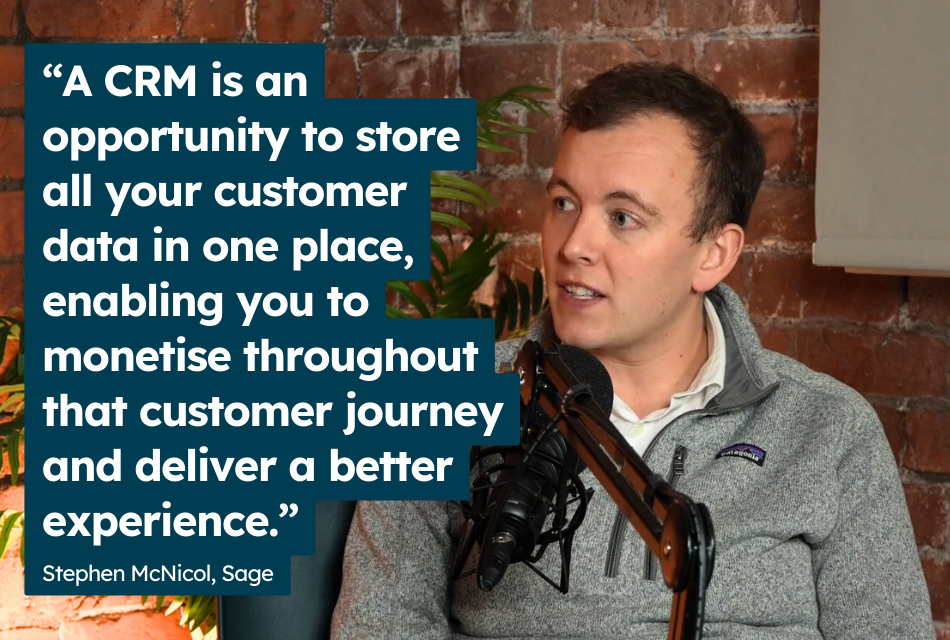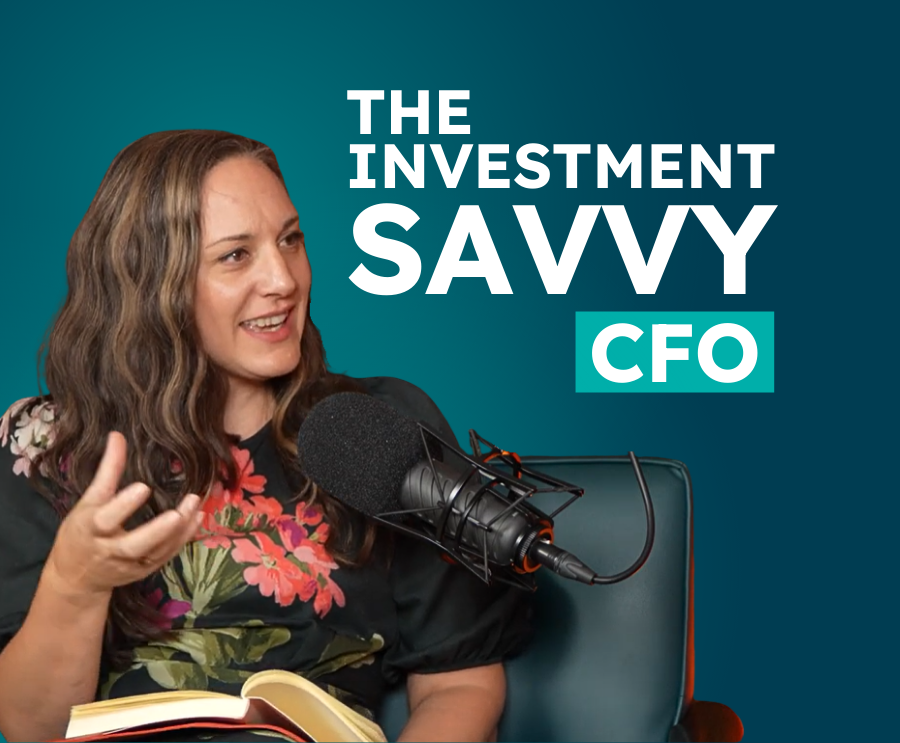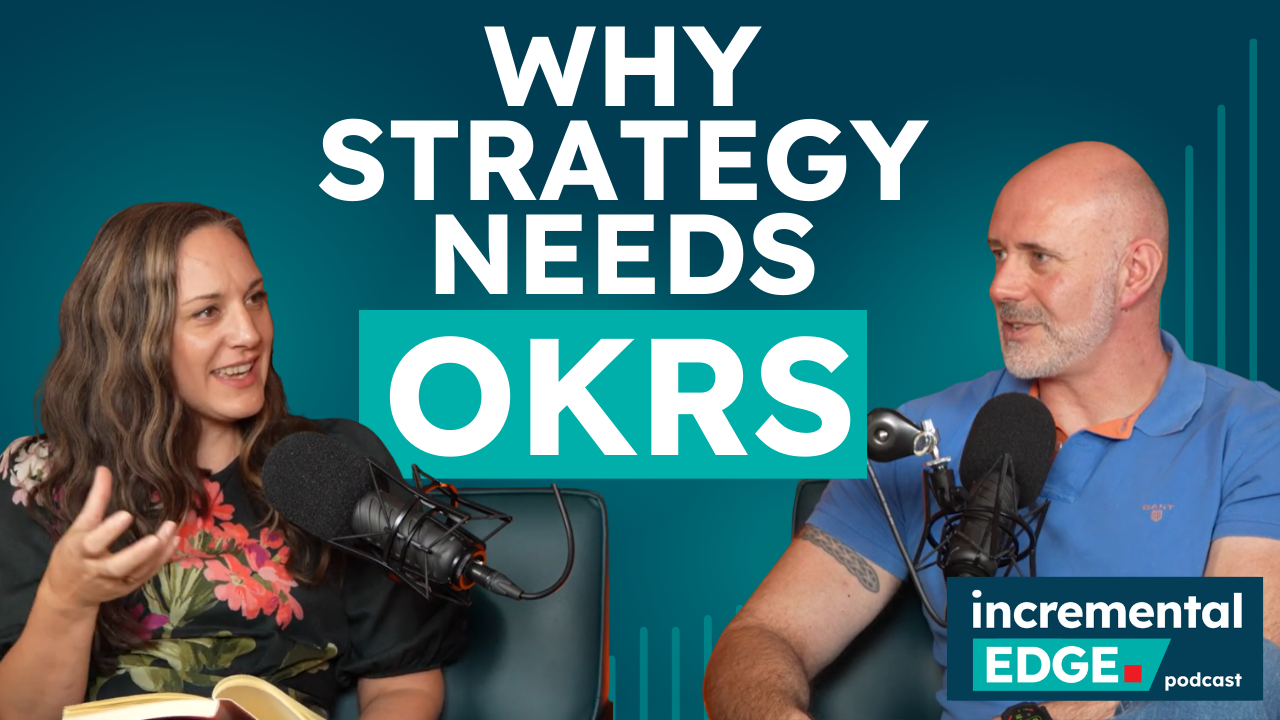
Insights
The First 100 Days: Shaping the Path for PE Success
31st March 2025
6 min read
Author: Emma Pownall, Marketing Director, Datel
The first 100 days after securing private equity investment can define the future of your business. It’s an intense period of transition, where expectations are high, strategies take shape, and momentum is crucial. Whether you're navigating new financial structures, aligning with investor goals, or driving operational efficiencies, how you approach this phase can determine whether your PE-backed journey is a success or a struggle.
In this third episode of our Incremental Edge private equity spotlight we explore what to prioritise, how to build strong investor relationships, and the common pitfalls to avoid. With the right plan, the first 100 days can be a launchpad for long-term value creation.
What to expect from the episode
🟥 Setting the right cadence for success
.png?width=853&height=453&name=PE%20blog%203%20graphic%20(2).png)
Establishing clear reporting expectations
By the time a deal is completed, the due diligence process will have provided clear insights into the company’s financials and strategic growth plans. Private equity investors expect to see that things are on track, so one of the biggest mistakes a management team can make is assuming that their existing reporting processes will suffice. New stakeholders often require new levels of visibility, and in many cases, that means adapting to a more structured and frequent reporting cadence.
Managing debt and financial obligations
Most PE investments are not just about equity, debt is almost always part of the picture. That could mean senior debt, facility debt, or other financial instruments that require additional reporting and oversight. Understanding who needs to see what, when, and in what format is essential. Missing a reporting obligation isn’t an option, especially when dealing with external lenders or intermediaries who may have their own requirements.
No surprises: communicating clearly through challenges
Business plans may shift, headwinds may arise, and external factors may cause deviations from the original strategy. The key is proactive, transparent communication. If something isn’t going to plan, the investors need to know, not when it becomes a crisis, but when it first starts to emerge.
It’s a partnership, not an interrogation
One of the biggest misconceptions about private equity is that it’s an antagonistic relationship, a constant pressure to deliver results under scrutiny. The reality? Investors want management teams to succeed. Their success is directly tied to the success of the business. That’s why the first 100 days should be used to establish a collaborative relationship, asking what information they need, how they prefer to receive it, and what makes decision-making easier for them.
Laying the groundwork for long-term success
The first 100 days set the rhythm for the rest of the investment cycle. It’s about delivering on expectations, proving credibility, and ensuring that reporting is structured, clear, and actionable. Those who get this right from day one will not only build trust but also create a strong foundation for the years ahead.
🟥 From deal to delivery: Staying focused
The first 100 days in private equity do not happen in isolation, they come after an intense, high-pressure period leading up to the deal. The four to six months before signing can be a whirlwind of negotiations, due diligence, and financial scrutiny, and for many, that stress doesn’t simply disappear once the deal is signed. If founders are staying on as part of the investment, the shift from maximising value to delivering value can feel like a hard pivot.
This is where your focus needs to be clear - stick to the value creation plan. A strong plan will have already been mapped out before the deal. Cash, liquidity, and cost optimisation will often be at the forefront, and it's about understanding where the money is, how it's being used, and where efficiencies can be found.
🟥 Setting foundations for long-term value
Whether growth is about plugging into a broader platform, scaling R&D, or entering new markets, those first three months set the foundation for long-term value creation. The focus should be on your execution, alignment, and momentum to ensure the investment gets off to the strongest possible start.
A 100-day plan isn’t just a concept; it’s a structured, actionable roadmap that often takes shape in the latter stages of the deal process. It includes addressing red flags identified during the due diligence process, laying out key strategic initiatives, and setting clear expectations for reporting and performance tracking.
This period isn’t just a challenge, it’s an opportunity. The best teams thrive in this environment by being clear on priorities, aligning on non-negotiables, and ensuring that everyone is accountable for delivering on the commitments made. If the first 100 days are handled well, they set the stage for long-term success and a strong investor relationship.
🟥 Digital transformation and prioritising for impact
In today’s private equity landscape, digital transformation isn’t optional, in fact it’s inevitable. Almost every business is working on some form of digital upgrade, but the key to success lies in aligning these initiatives with the business outcomes that drive value.
Take CRM systems, for example. A well-implemented CRM doesn’t just store customer data, it enhances the entire customer journey, enabling businesses to monetise relationships, improve retention, and expand into new markets. However, implementing a CRM takes time, and it must be integrated with wider strategies, whether that’s acquiring new customers or increasing cross-sell opportunities.
Then there’s finance and ERP systems, the backbone of financial and operational efficiency. A scalable and integrated accounting solution can automate processes, remove inefficiencies, and allow the business to grow without a proportional increase in costs. In private equity, where value creation is essential, a solid ERP and financial accounting software can unlock significant operational leverage.
And what about people? They are often the biggest cost in a business. A strong human capital management system can transform workforce management by automating payroll, improving employee experience, and maximising productivity.
Ultimately, every part of a business can undergo digital transformation, but it’s all about how you prioritise. The smartest leaders focus on what will drive the most impact, ensuring that every technology investment is tied back to the original business case and the value creation plan.
🟥 Approaching discussions with the PE house
Entering private equity is an exciting but challenging time. After the intensity of closing the deal, a new set of challenges begins - managing an evolving group of stakeholders. The finance team, already familiar with the business and its leaders, now faces the task of balancing multiple, often conflicting, priorities.
First off, private equity investors are highly skilled at refining management information packs, often adding new KPIs or tweaking existing ones to better align with their objectives. This means that finance teams must quickly adapt to new reporting structures and expectations, preparing for an evolving cadence of financial data presentation.
For the finance team, this period demands more than just report production, it’s about stakeholder management. The boardroom is no longer a familiar space, as new members with different priorities are welcomed. Ensuring that each stakeholder, from private equity investors to debt providers, has the insights they need in the right format is key to maintaining trust and building momentum for the business.
In these early stages, clarity and timely delivery of relevant information will be your most valuable assets.
Incremental Edge private equity spotlight
We hope you enjoy the third episode of the series and gain valuable insights on the first 100 days in private equity.
Latest posts

9th February 2026
3 min read
The Investment-Savvy CFO: A live discussion in Manchester
There’s a point in many growing businesses where the conversation shifts. It’s no longer just about ...
.png)
9th December 2025
4 min read
Learn about the upcoming changes to FRS 102 and how to prepare
FRS 102 is getting a major update from 2026, with big implications for revenue recognition and ...

4th December 2025
4 min read
The OKR Effect: Why outcome focus improves strategic execution
Strategy is something most leaders care deeply about. We invest time building a clear plan, shaping ...
